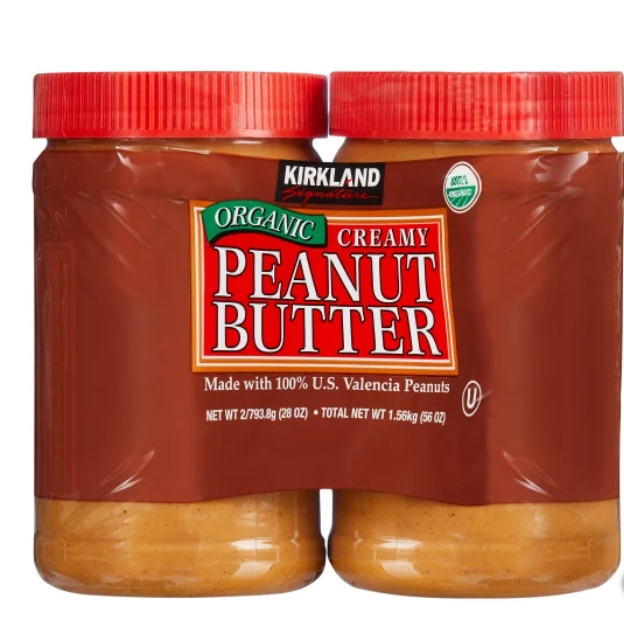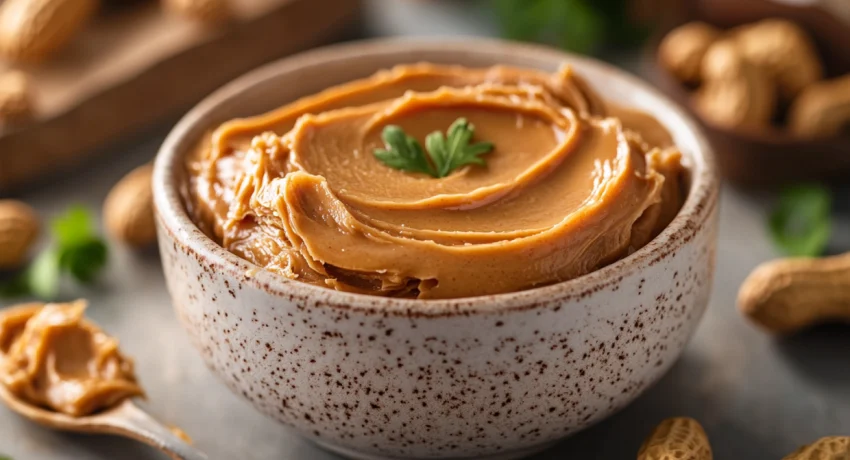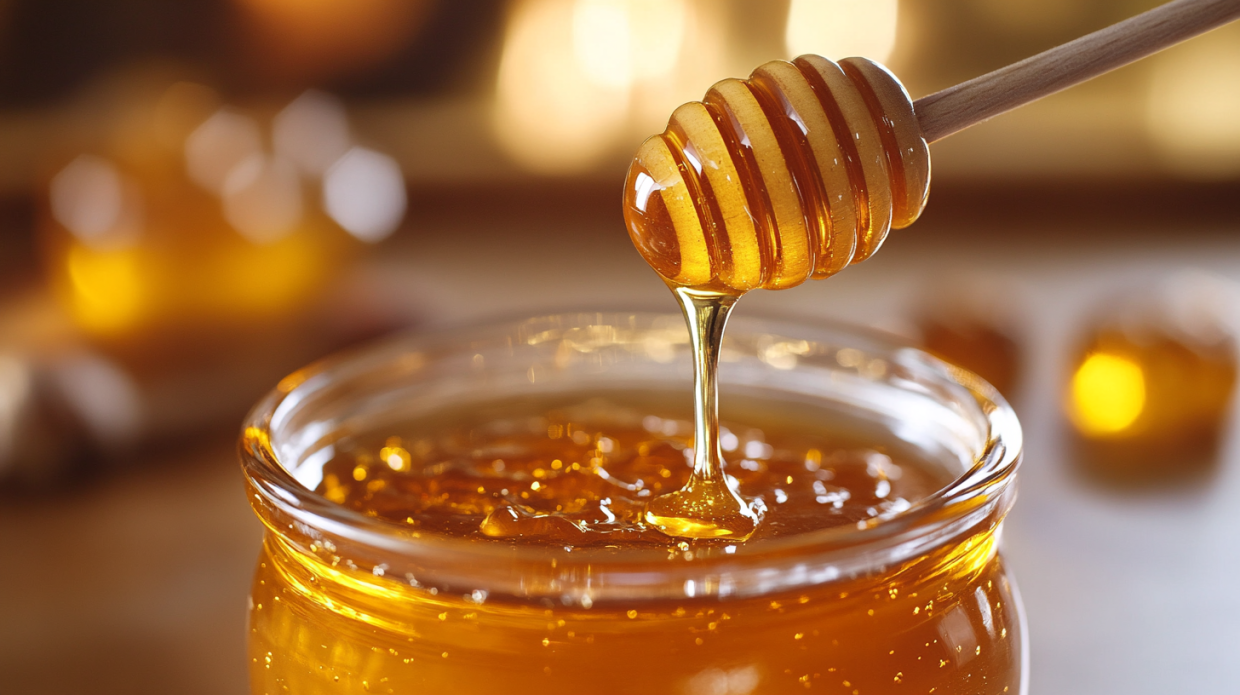
Kirkland Signature Organic Peanut Butter, 28 oz, 2-count
- Creamy
- Dry Roasted
- Sprinkled with Sea Salt
- USDA Organic
- Kosher
Why This Costco Classic Deserves a Permanent Place in Your Kitchen
Peanut butter—that creamy, nutty spread that has somehow managed to transcend generations, dietary trends, and culinary boundaries. Whether you’re a health enthusiast, a parent packing school lunches, or simply someone who appreciates quality food at reasonable prices, Kirkland Signature Peanut Butter stands out as one of the most underrated treasures in Costco’s vast warehouse empire.
As a self-proclaimed peanut butter connoisseur (yes, we exist), I’ve spent more time than I care to admit analyzing, tasting, and cooking with various peanut butter brands. After years of exploration, I keep coming back to the reliable two-pack of Kirkland Signature Peanut Butter that sits proudly in my pantry. Let me take you on a journey through everything you need to know about this pantry staple—from ingredients to nutrition, versatility to value, and all the nutty details in between.
The Ingredient List: Simplicity at Its Finest
In a world where food labels often read like chemistry experiments, Kirkland Peanut Butter’s ingredient list is refreshingly straightforward. The standard creamy version contains just:
- Roasted peanuts
- Sugar (in modest amounts)
- Hydrogenated vegetable oils (to prevent separation)
- Salt
That’s it. No artificial flavors, no mysterious additives with unpronounceable names. The organic version strips this down even further, containing only dry roasted organic peanuts and salt.
This simplicity is increasingly rare in the commercial peanut butter world, where many competitors pad their products with additional oils, stabilizers, and flavor enhancers. While Kirkland’s regular version isn’t “just peanuts,” it maintains a balance between purity and practicality that many consumers appreciate.
Organic vs. Regular: Understanding Your Options
Costco offers both conventional and organic versions of their Kirkland Signature Peanut Butter, giving shoppers options based on their preferences and priorities.
The organic version has achieved something of a cult following among health-conscious shoppers. Made with organically grown peanuts, it contains no added sugar and no hydrogenated oils. This means it requires stirring when first opened (as the natural oils separate), but many devotees consider this a small price to pay for a cleaner ingredient list.
The conventional version, while not organic, still delivers excellent quality at an unbeatable price point. It contains a minimal amount of added sugar compared to many competitors, and uses just enough hydrogenated vegetable oil to prevent the frustrating oil separation that natural peanut butters are known for.
Neither version is inherently “better”—it really comes down to your personal preferences regarding taste, texture, convenience, and ingredients.
The Sweet Question: Added Sugar Content
Let’s address the elephant in the room—sugar content. The regular Kirkland Peanut Butter contains a modest amount of added sugar that enhances the natural sweetness of the peanuts without overwhelming your taste buds or your blood glucose levels.
Compared to major commercial brands like Jif and Skippy, Kirkland’s regular version generally contains less added sugar per serving. For those tracking their sugar intake, this can be a significant advantage.
The organic version, meanwhile, contains no added sugar whatsoever. The only sweetness comes from the natural sugars present in the peanuts themselves, making it an excellent option for those strictly limiting sugar intake or following specific dietary protocols.
Nutritional Breakdown: What’s Really in That Spoonful?
A typical two-tablespoon serving (32g) of Kirkland Signature Creamy Peanut Butter contains approximately:
- Calories: 190
- Total Fat: 16g
- Saturated Fat: 3g
- Trans Fat: 0g
- Cholesterol: 0mg
- Sodium: 150mg
- Total Carbohydrates: 7g
- Dietary Fiber: 2g
- Sugars: 3g (1-2g added, depending on the version)
- Protein: 7g
The organic version has a similar profile but with slightly less sodium and no added sugars.
What’s particularly impressive about Kirkland Peanut Butter’s nutritional profile is its protein content. At 7 grams per serving, it provides approximately 14% of the daily protein needs for an average adult, making it an efficient and delicious protein source.
The Health Question: Is Kirkland Peanut Butter Good For You?
The short answer: yes, in moderation.
The longer answer requires understanding that peanut butter, by nature, is calorie-dense. However, these calories come packaged with impressive nutritional benefits. Peanut butter provides:
- Heart-healthy monounsaturated fats
- Plant-based protein
- Fiber for digestive health
- Essential vitamins and minerals including vitamin E, magnesium, and potassium
- Bioactive compounds with antioxidant properties
Kirkland Peanut Butter, particularly the organic version, delivers these benefits with minimal additional ingredients. Even the regular version, with its modest additions, maintains most of the nutritional integrity of the peanuts themselves.
That said, portion control remains important. Those two tablespoons (32g) provide substantial calories, and it’s remarkably easy to consume more than the suggested serving size—especially when eating directly from the jar (we’ve all been there).
Special Diets: Can Kirkland Peanut Butter Fit?
Gluten-Free Living
Good news for those with celiac disease or gluten sensitivity: Kirkland Peanut Butter is naturally gluten-free. The ingredient list contains no wheat, barley, rye, or their derivatives. However, those with severe gluten reactions should note that while the product itself contains no gluten, Costco doesn’t explicitly market it as “certified gluten-free,” which would require additional testing for cross-contamination.
Keto Considerations
For followers of ketogenic diets, Kirkland’s organic peanut butter is the clear winner. With no added sugar and approximately 4-5 net carbs per serving (total carbs minus fiber), it can fit into a well-planned keto diet. The regular version, with its small amount of added sugar, has slightly higher carb content but can still work for those on less strict low-carb plans.
Vegan and Vegetarian Compatibility
Both versions of Kirkland Peanut Butter are plant-based and contain no animal products, making them suitable for vegan and vegetarian diets. This makes them versatile protein sources for those avoiding animal products.
Storage Secrets: To Refrigerate or Not to Refrigerate?
This question sparks surprisingly passionate debate among peanut butter enthusiasts. Here’s the practical breakdown:
The regular Kirkland Peanut Butter contains stabilizers that prevent separation, meaning refrigeration isn’t strictly necessary. It can be stored in a cool, dry pantry for several months after opening without spoiling.
The organic version, being free from stabilizers, benefits from refrigeration after opening. This slows the natural separation process and extends freshness. However, refrigeration does make it firmer and less spreadable, so some people prefer to store it at room temperature and accept the need for occasional stirring.
Regardless of which version you choose, the shelf life of unopened Kirkland Peanut Butter is impressive—typically 9-12 months from the production date. Once opened, the regular version stays fresh for 2-3 months at room temperature, while the organic version is best consumed within 1-2 months if unrefrigerated, or 3-4 months if refrigerated.
The Palm Oil Question
Many consumers are increasingly concerned about palm oil due to its environmental impact. The good news is that Kirkland Signature Peanut Butter does not contain palm oil. The hydrogenated vegetable oils used in the regular version are typically derived from soybean, cottonseed, or rapeseed (canola), not palm.
For those particularly concerned about oil sourcing, the organic version avoids the question entirely by containing no added oils whatsoever.
Brand Comparison: How Does Kirkland Stack Up?
When comparing Kirkland Peanut Butter to major competitors like Skippy and Jif, several differences emerge:
Ingredient Quality and Simplicity
Kirkland generally offers a cleaner ingredient list than most mass-market brands. While Jif and Skippy typically contain more additives, including more types of oils and sometimes artificial flavors, Kirkland keeps it simpler. The organic Kirkland option is among the cleanest commercial peanut butters available at its price point.
Taste and Texture
Kirkland’s regular peanut butter offers a middle ground between natural and heavily processed options. It’s smoother than most natural peanut butters but less artificially creamy than ultra-processed versions. The flavor is distinctly peanutty with a balanced sweetness.
The organic version has a more robust peanut flavor that some describe as “more authentic,” though its texture requires more adjustment for those accustomed to commercial brands.
Value Proposition
This is where Kirkland truly shines. Sold in twin-packs of 28-ounce jars, Kirkland Peanut Butter typically costs significantly less per ounce than equivalent products from Jif, Skippy, or other national brands. The organic version, while pricier than the regular, still undercuts most organic competitors by a substantial margin.
Texture Options: Smooth Operators and Crunch Enthusiasts
Yes, texture matters intensely to peanut butter aficionados. Kirkland offers both creamy and crunchy versions of their peanut butter, accommodating different textural preferences.
The creamy version is smooth and spreadable but retains some authentic peanut texture—it’s not quite as ultra-homogenized as some commercial brands. This gives it character while still making it easy to spread on delicate bread or use in recipes.
The crunchy version contains substantial peanut pieces that provide satisfying texture contrast. These chunks are distributed fairly evenly throughout the product, avoiding the “all crunch at the top, all smooth at the bottom” problem that plagues some inferior crunchy peanut butters.
Sourcing and Production: Made in the USA?
For those concerned about product origin, you’ll be pleased to know that Kirkland Signature Peanut Butter is indeed made in the United States. Costco partners with established American manufacturers to produce their private label products, and peanut butter is no exception.
American peanut farming is centered in Georgia, Texas, Alabama, North Carolina, Florida, and Virginia, with these states producing the vast majority of U.S. peanuts. The specific sourcing of peanuts for Kirkland products may vary by production batch, but they remain domestic in origin.
GMO Status: What to Know
The standard Kirkland Peanut Butter doesn’t carry a non-GMO certification. However, the organic version is certified organic, which by definition means it’s also non-GMO, as genetic modification is prohibited in organic certification.
For those specifically concerned about GMOs, the organic Kirkland option provides assurance of non-GMO ingredients. It’s worth noting that peanuts themselves are not among the most common GMO crops in the U.S. (unlike soy or corn), though this doesn’t address any oils or additives in the standard version.
Culinary Versatility: Beyond the Sandwich
Kirkland Peanut Butter shines in culinary applications beyond the classic PB&J. Its balanced flavor and reliable consistency make it an excellent ingredient for:
Baking Applications
The standard Kirkland Peanut Butter performs exceptionally well in baking. Its stable emulsion helps create consistent results in cookies, cakes, and bars. The slight sweetness complements baked goods without requiring recipe adjustments, and it creams well with butter and sugar in standard baking procedures.
The organic version, while less predictable due to its natural oil separation, adds a more intense peanut flavor to baked goods. It works particularly well in recipes where a pronounced peanut character is desired, though you may need to adjust moisture levels in some recipes.
Smoothie Enhancement
Both versions blend beautifully into smoothies, adding protein, healthy fats, and satisfying creaminess. The regular version incorporates slightly more easily due to its consistent texture, while the organic version brings a more robust peanut flavor that pairs particularly well with chocolate, banana, or coffee smoothie bases.
A practical tip: For easier blending, especially with the organic version, try melting your measured peanut butter for a few seconds in the microwave before adding it to your blender.
Asian-Inspired Sauces
Kirkland Peanut Butter forms an excellent base for Thai-inspired peanut sauces. Its clean peanut flavor provides the perfect foundation for additional ingredients like coconut milk, lime juice, soy sauce, and chili. The regular version’s emulsifiers actually help these sauces stay stable longer, while the organic version offers a more pronounced peanut character that stands up well to bold ingredients.
Energy Bites and Homemade Bars
Both versions work beautifully in no-bake energy bites and homemade protein bars. Combined with ingredients like oats, honey, dried fruit, and seeds, Kirkland Peanut Butter helps bind these nutritious snacks while contributing protein and healthy fats that provide sustained energy.
The Value Equation: Cost Analysis
One of Kirkland Peanut Butter’s most compelling attributes is its value proposition. Typically sold in two-packs of 28-ounce jars, it offers significant savings compared to name-brand alternatives.
At most Costco locations, the regular Kirkland Peanut Butter two-pack costs between $9.99 and $11.99, depending on region and current pricing. This translates to approximately $0.18-$0.21 per ounce.
The organic version typically runs between $13.99 and $15.99 for a two-pack, or approximately $0.25-$0.29 per ounce.
By comparison, name-brand peanut butters like Jif or Skippy typically cost $0.25-$0.35 per ounce for their standard varieties, while their organic or natural lines can cost $0.40-$0.60 per ounce.
This value becomes even more apparent when considering the nutritional density of peanut butter. Few foods offer comparable protein, healthy fat, and micronutrient content at this price point, making Kirkland Peanut Butter an economical choice for budget-conscious nutrition.
Consumer Consensus: What Do Reviews Say?
Reviews of Kirkland Peanut Butter are overwhelmingly positive across various platforms. Consumer feedback consistently highlights several strengths:
- Value for money is mentioned in nearly 80% of positive reviews
- Taste quality ranks highly, with many noting its balanced sweetness and authentic peanut flavor
- Texture receives high marks, particularly from those who prefer a middle ground between natural and heavily processed options
- Ingredient simplicity is frequently praised, especially for the organic version
The most common criticisms relate to:
- Occasional inconsistency between batches (primarily noted for the organic version)
- Some find the regular version not quite as creamy as ultra-processed competitors
- Limited availability outside of Costco membership
Interestingly, many reviewers mention switching to Kirkland from name brands during budget-conscious periods, only to discover they preferred the Kirkland version regardless of price considerations.
Finding and Buying Kirkland Peanut Butter
As a Costco private label product, Kirkland Signature Peanut Butter is primarily available at Costco warehouse locations. Most stores stock both the regular and organic varieties, though availability can vary by location.
For those without a Costco membership, limited options exist:
- Costco’s website occasionally offers certain Kirkland products to non-members, though typically at higher prices and with additional fees
- Third-party resellers on platforms like Amazon sometimes offer Kirkland products, though typically at significant markups
- Instacart and similar services can deliver from Costco in some areas, though non-members will pay higher prices and delivery fees
The most cost-effective way to purchase Kirkland Peanut Butter remains through a Costco membership, which currently costs $60 annually for a basic membership or $120 for an Executive membership with additional benefits.
The Final Spread: Is Kirkland Peanut Butter Worth It?
After examining ingredients, nutrition, versatility, value, and consumer sentiment, the verdict is clear: Kirkland Signature Peanut Butter offers exceptional quality at an unmatched price point.
For families, fitness enthusiasts, budget-conscious shoppers, and culinary experimenters alike, it provides a reliable, versatile product that doesn’t compromise on fundamentals. The organic version satisfies those seeking minimal ingredients, while the regular option offers convenience and consistent performance across various applications.
While no single product works for everyone, Kirkland Peanut Butter has earned its place as a pantry staple for good reason. Its balance of quality, value, and versatility makes it worth consideration for anyone looking to optimize their grocery budget without sacrificing nutrition or taste.
Whether you’re spreading it on toast, blending it into smoothies, incorporating it into Asian-inspired sauces, or eating it straight from the jar (no judgment here), Kirkland Peanut Butter delivers consistent quality that has built a dedicated following among discerning consumers.
So next time you’re wheeling that oversized cart through Costco’s cavernous aisles, consider adding that twin-pack of Kirkland Signature Peanut Butter to your haul. Your taste buds—and your wallet—will thank you.




